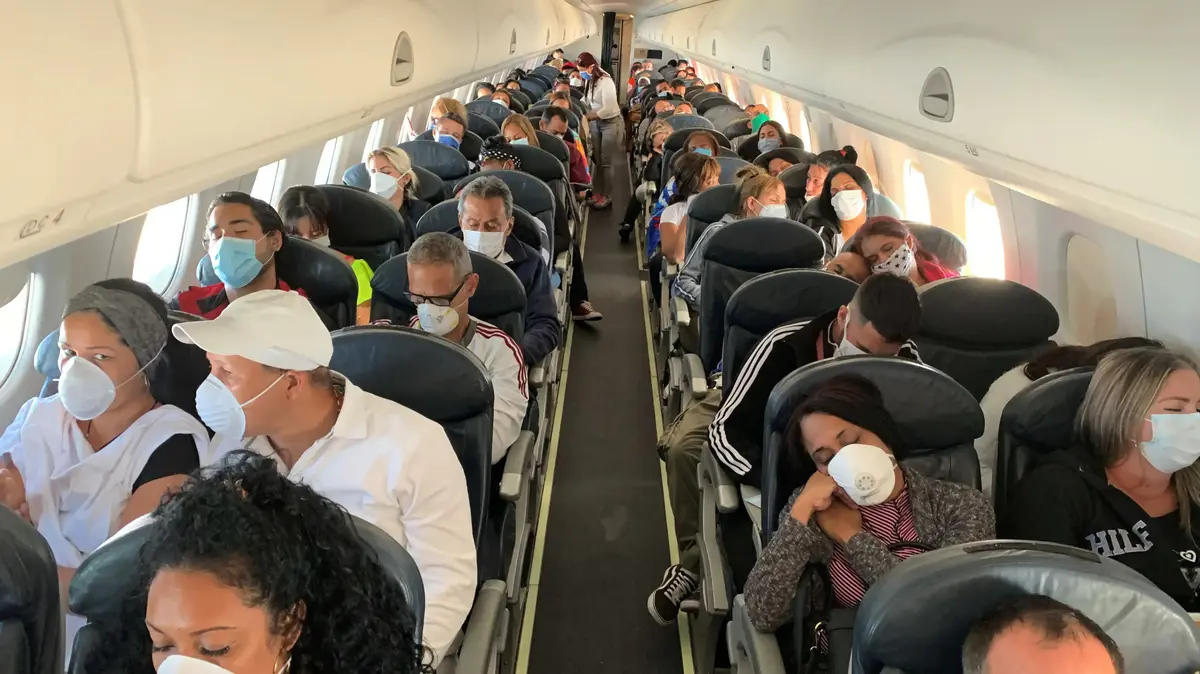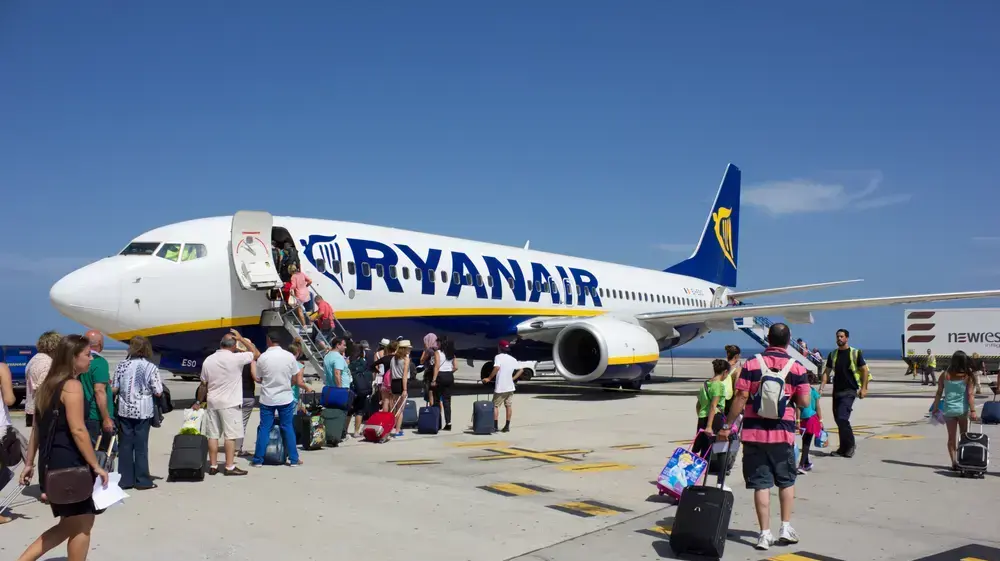- health
- news
Afraid to fly because of the corona? This is what should really be feared
The thought of sitting in an airtight passenger compartment and in close proximity to other passengers who may be ill deters many, but the flight itself is not that scary here. The problem starts when getting off the plane at the destination
Tags- Corona
- Corona virus
- Flights
Walla! health
Sunday, August 23, 2020, 11:00 p.m.- Share on Facebook
- Share on WhatsApp
- Share on general
- Share on general
- Share on Twitter
- Share on Email
One of the first and most prominent things that happened with the spread of the corona in the world and the announcement of a global epidemic, is the halting of flights. Although the sky was not completely closed, the number of flights and the number of passengers dropped drastically, sharply and quickly. Airlines that have been fatally affected by this crisis are now trying to get their business back on track and one of the steps many of them are taking is offering airline tickets at very attractive deals.
However, the passenger crowd is still very apprehensive. Most people in the world consider sitting in the small, enclosed space of an airplane for a few hours a significant and often unnecessary risk. This is despite the precautions taken by the airlines, which require wearing masks for the entire duration of the flights they operate, have increased the frequency of cleaning and disinfection that the aircraft go through and some do not even sell tickets for middle seats as a means of keeping passengers safe.
More on Walla! NEWS
We asked 4 doctors if they would send their children to the frames on September 1st
To the full article
Many experts agree that in these conditions a flight should not significantly increase the risk of one passenger or another being infected with Covid-19 in the flight itself. In part because the air flowing into the cabin also undergoes a refresh. Although it is worth noting that there are also epidemiologists who still believe that flying is a risk that is best avoided at the moment, as much as possible.
The risk of getting infected from another passenger during the flight is quite low. Passengers wearing masks on flight from Venezuela to Cuba, March 2020 (Photo: Reuters)But at the macro level - there is a more significant infection threat that the flights carry in the debt, and it is not related to the flight itself, but to what happens after it. That is, the possibility that a sick passenger will spread the virus to the destination he is traveling to, or that passengers from infection centers will cause outbreaks at relatively "clean" destinations. And the aviation world does not address this issue at this time. Selling a plane ticket from New York to Detroit for $ 20 is one thing financially, but a completely different matter from an ethical point of view.
From Wahan to San Francisco - in the blink of an eye
The corona plague came out of China and spread around the world with the help of planes. That's a fact. The global contagion picture would surely have looked very different had it not been for air travel was possible and accessible at a level where a person from Wahan could board a flight and land in San Francisco a few hours later with relative ease. And if you compare it to a steamship trip or to less advanced means of transportation that were common in days gone by and during other global epidemics - it's a real blink of an eye.
"The chances of a person getting infected from a patient or carrier sitting next to them on a flight are relatively low," says Dr. Robin Thompson, a mathematical epidemiologist at the University of Oxford in the UK, whose research deals with the extent of epidemic-spread flights. "That the virus will be transmitted between countries and countries by any of these passengers - this is no longer a negligible risk," he explained.
More on Walla! NEWS
- The frightening effect of the corona plague on the next generation
- Not just flu: How does corona affect other diseases?
- 12 foods that every woman should add to her menu
- Do not compromise on unsatisfying sex life: this will improve performance
The United States, which has been severely affected by the epidemic and its number of patients and deaths is among the highest in the world, faces a similar problem at home - domestic flights. The morbidity situation in various US states varies greatly, some countries are considered infected, While in other countries the situation is more stable. The possibility of flying between countries entails a risk of creating additional centers of infection and disturbing the delicate balance in the relatively "clean" countries.
A very clear example of this risk can be seen in a report published in ProPublica on August 18 and was based on locating anonymous phones. The cell phones from the same repository (and presumably their owners as well) were later serviced in any of the infected countries across the U.S., except Maine. A convincing proof of the aviation industry's unique ability to disperse humans - and with them infectious diseases - across vast expanses of space quickly, efficiently and easily.
It is still too early to determine whether the resumption of domestic flights is preventing the spread of the epidemic within U.S. borders more than other modes of transportation. However, it can be seen from data that neighboring countries tend to have the same disease status. Lower than the risk involved in flying a sick person from a country with a high morbidity rate to a more distant country
, while American airlines offer round-trip tickets for domestic flights (some to and from hotspots) that cost less than a taxi to the airport, international airlines actually reduce the frequency of flights to their destinations in the world where there are new outbreaks. for example, the frequency of flights to Auckland in new Zealand has been significantly curtailed following reports new outbreak there of less than one hundred cases in total.
in the absence of governmental request them, makes very good sense from a business perspective airlines will focus on the personal security of Every passenger will try to convince the public that the individual risk of getting infected during a flight is low, in order to encourage the purchase of tickets and pour money into their emptied pockets.Being private and free, they have no interest See the big picture regarding public health.
- Share on Facebook
- Share on WhatsApp
- Share on general
- Share on general
- Share on Twitter
- Share on Email








